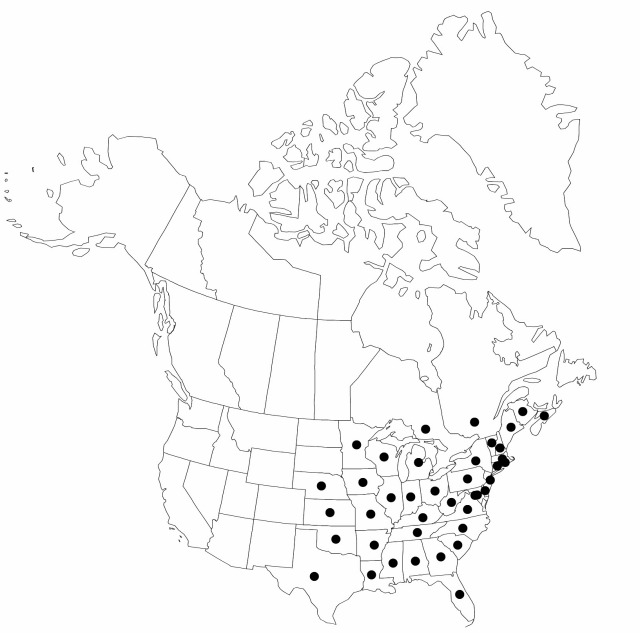Carex tribuloides
Kongl. Vetensk. Acad. Nya Handl. 24: 145. 1803.
Plants densely cespitose. Culms 50–110 cm; vegetative culms with numerous leaves spaced evenly along distal 1/2. Leaves: sheaths adaxially green-veined nearly to collar, with ± triangular white-hyaline area to 3–8 mm proximal to collar, somewhat loose, expanded near summits, ± wing-angled, adaxially firm, summits U-shaped, somewhat thickened, slightly prolonged beyond collar; distal ligules 4–8(–12) mm; blades 4–10 per fertile culm, 15–40 cm × (2–)3–7 mm. Inflorescences erect, dense distally, brown, 2–5(–8) cm × 10–20 mm; proximal internode 2–20 mm; 2d internode 2–13 mm; proximal bracts bristlelike, 1(–8) cm. Spikes 6–15, overlapping or distinct, ovoid-oblong to globose, 6–12(–16) × 4–8 mm, base rounded to tapered, apex rounded. Pistillate scales white-hyaline or pale silvery brown with green midstripe, lanceolate, (1.9–)2.5–3 mm, 1/2 length of and narrower than perigynia, apex acute to acuminate. Perigynia more than (30–)40 per spike, appressed-ascending to ascending, pale green to pale brown, 3–6-veined abaxially, conspicuously or, occasionally, faintly, 2–4-veined adaxially, often somewhat asymmetric, ovate-lanceolate to ovate-elliptic, plano-convex, 3–5.4 × 1.1–1.7 mm, 0.3–0.5 mm thick, margin flat, including wing 0.1–0.5 mm wide; beak tip flat, ciliate-serrulate, abaxial suture with golden to dark brown hyaline margin, distance from beak tip to achene 1.4–2 mm. Achenes oblong-ovate, 1–1.8 × 0.6–0.9 mm, 0.3–0.5 mm thick. 2n = 70.
Distribution

N.B., N.S., Ont., Que., Ala., Ark., Conn., D.C., Del., Fla., Ga., Ill., Ind., Iowa, Kans., Ky., La., Maine, Mass., Md., Mich., Minn., Miss., Mo., N.C., N.H., N.J., N.Y., Nebr., Ohio, Okla., Pa., R.I., S.C., Tenn., Tex., Va., Vt., W.Va., Wis., Mexico (Veracruz).
Discussion
Varieties 2 (2 in the flora).
See note under 146. Carex longii.
Selected References
None.
Key
| 1 | Perigynia 3–5 times as long as wide. | Carex tribuloides var. tribuloides |
| 1 | Perigynia 2.2–2.8(–3) times as long as wide. | Carex tribuloides var. sangamonensis |